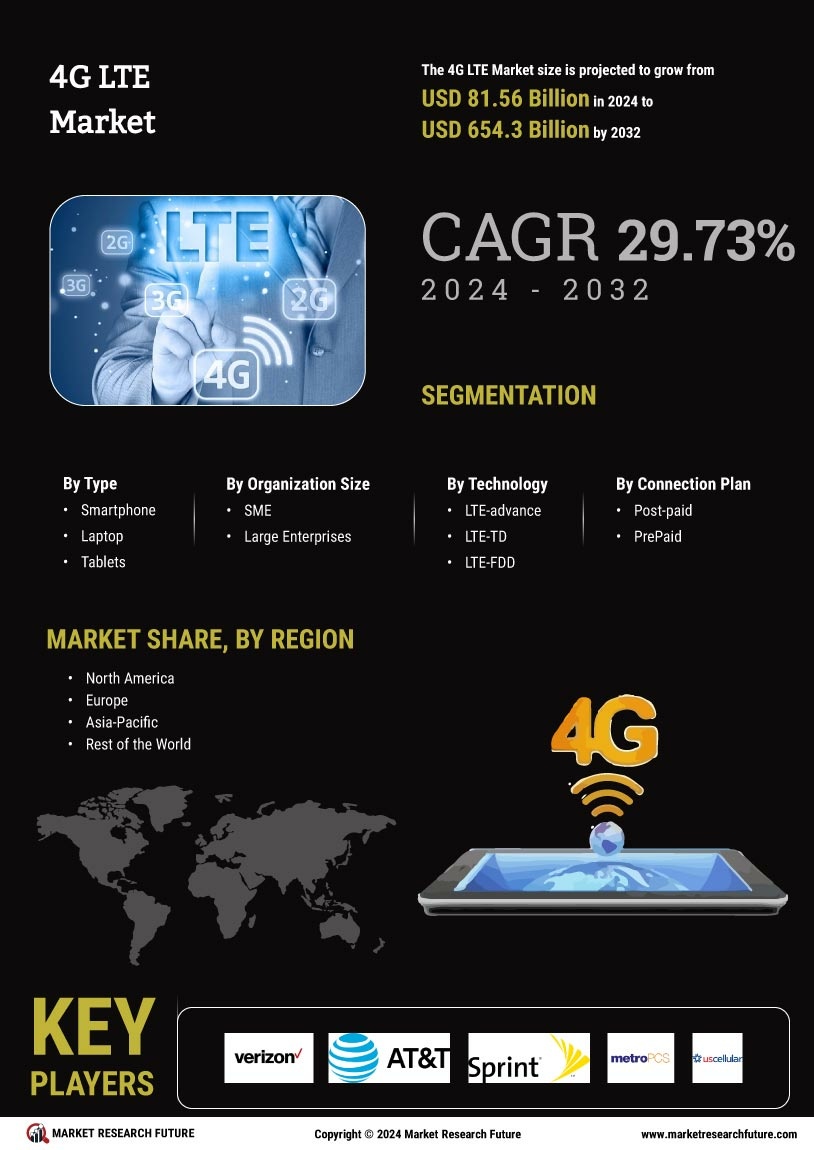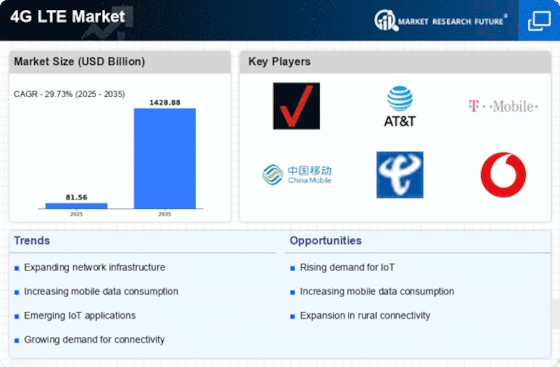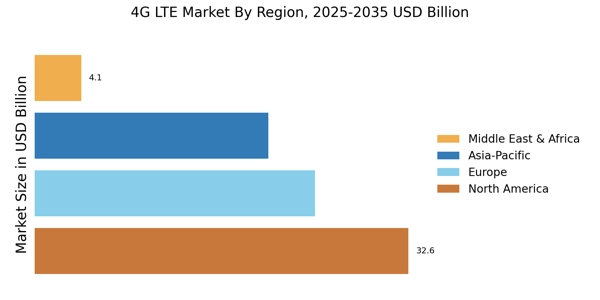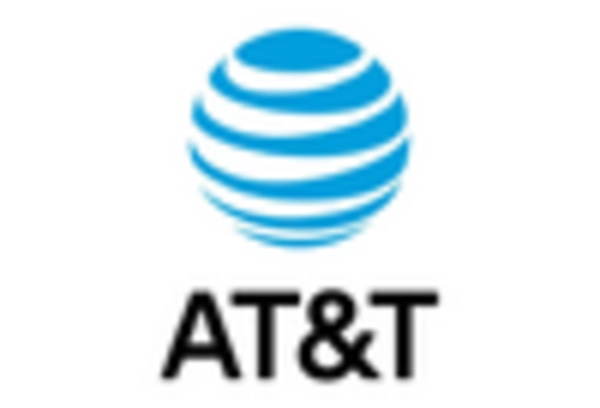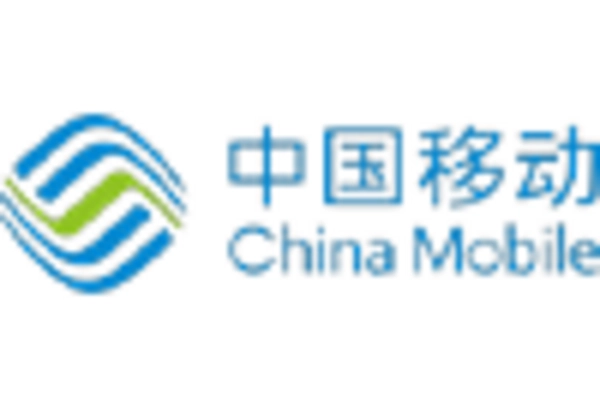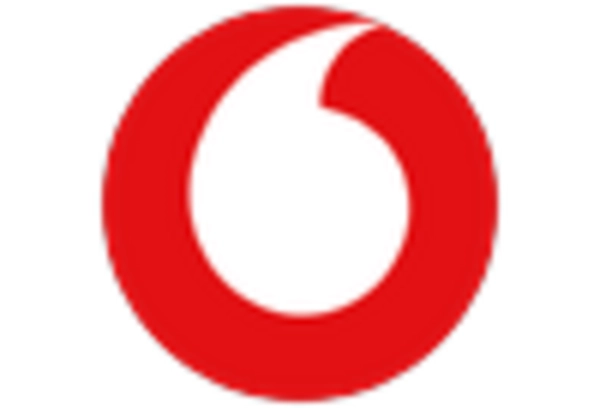Rising Smartphone Penetration
The proliferation of smartphones is a pivotal driver in the 4G LTE Market. As of October 2025, smartphone penetration rates have reached approximately 80% in many regions, facilitating increased access to mobile data services. This surge in smartphone usage correlates with a heightened demand for faster and more reliable internet connectivity, which 4G LTE Market technology provides. The convenience of mobile applications, social media, and streaming services further propels this trend, as consumers seek seamless experiences. Consequently, telecommunications companies are compelled to enhance their 4G LTE Market infrastructure to accommodate the growing user base. This dynamic not only stimulates competition among service providers but also encourages innovation in service offerings, thereby reinforcing the overall growth trajectory of the 4G LTE Market.
Integration of Smart Technologies
The integration of smart technologies is emerging as a significant driver in the 4G LTE Market. The proliferation of smart devices, including wearables, smart home appliances, and connected vehicles, is creating a demand for reliable and high-speed mobile connectivity. As of October 2025, the number of connected devices is projected to exceed 30 billion, necessitating robust 4G LTE Market networks to support seamless communication between these devices. This trend is further amplified by the rise of smart city initiatives, which rely on advanced telecommunications infrastructure to enhance urban living. Telecommunications providers are thus motivated to enhance their 4G LTE Market offerings to cater to this growing market segment. The convergence of smart technologies with 4G LTE Market not only enhances user experiences but also drives innovation within the industry, ultimately contributing to the expansion of the 4G LTE Market.
Advancements in Network Infrastructure
Technological advancements in network infrastructure are significantly influencing the 4G LTE Market. The deployment of advanced technologies such as MIMO (Multiple Input Multiple Output) and carrier aggregation has enhanced the efficiency and capacity of 4G LTE Market networks. As of October 2025, many service providers are adopting these innovations to improve network performance and user experience. This evolution in infrastructure allows for better handling of increased data traffic, which is essential given the rising number of connected devices and the growing demand for mobile data. Furthermore, the integration of cloud computing and edge computing technologies is expected to optimize network operations, thereby reducing latency and improving service delivery. Such advancements not only bolster the competitive edge of telecommunications companies but also contribute to the overall expansion of the 4G LTE Market.
Growing Demand for High-Speed Internet
The insatiable demand for high-speed internet is a fundamental driver of the 4G LTE Market. As individuals and businesses increasingly rely on internet connectivity for various activities, the need for faster data transmission becomes paramount. In October 2025, data indicates that the average mobile data consumption per user has surged to over 10 GB per month, reflecting a shift towards data-intensive applications such as video streaming and online gaming. This trend necessitates robust 4G LTE Market networks capable of delivering high-speed internet services. Telecommunications providers are thus investing heavily in expanding their 4G LTE Market infrastructure to meet this demand, which not only enhances user satisfaction but also fosters customer loyalty. The competitive landscape is further intensified as companies strive to offer superior connectivity solutions, ultimately propelling the growth of the 4G LTE Market.
Regulatory Support for Telecommunications
Regulatory support plays a crucial role in shaping the 4G LTE Market. Governments worldwide are increasingly recognizing the importance of robust telecommunications infrastructure for economic growth and social development. As of October 2025, various regulatory bodies have implemented policies aimed at facilitating the expansion of 4G LTE Market networks, including spectrum allocation and investment incentives. This supportive regulatory environment encourages telecommunications companies to invest in infrastructure development, thereby enhancing service availability and quality. Moreover, initiatives aimed at bridging the digital divide are prompting investments in underserved areas, further driving the adoption of 4G LTE Market technology. Such regulatory measures not only foster competition among service providers but also contribute to the overall growth and sustainability of the 4G LTE Market.
